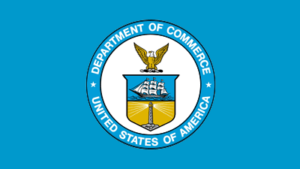
California Case Shines Spotlight On State’s Breach Notice Law
Apr 3, 2014
Sacramento, CA (Law Firm Newswire) April 3, 2014 – This case may the first of its kind. The California Attorney General’s office filed a lawsuit against the Kaiser Foundation Health Plan for allegedly violating the unfair competition law.
“This case stems from a personal information and security breach and delayed notification of this breach,” explains respected Sacramento business lawyer, Deborah Barron. The outcome of the case may have a significant impact on how and when companies that are governed by California’s breach notice law provide notice to those who are affected by such a breach. This is a similar situation to the Target payment card incident, in which there was a 3-week delay before customers were informed their personal information was breached.
California’s breach notification law, Section 1798.82 says, in summation, that any business storing personal information “shall” disclose any breach of their system, upon discovery or being advised of the breach, to residents of the state whose unencrypted information was, or is reasonably believed to have been breached. “The most relevant part of the section further states that ‘disclosure shall be made in the most expedient time possible and without unreasonable delay,’” adds Barron.
There is no explicit definition on the books for the most expedient time possible and without unreasonable delay, although the Office of Privacy Protection recommends within ten business days of a company/organization discovering a breach or possible breach.
In the Kaiser case, the Attorney General is alleging that in September, 2011, the health care giant found out that an external hard drive with dates of birth and social security numbers (SSNs), etc., of company workers was purchased by someone from a thrift store. In December of the same year, Kaiser obtained the drive and discovered more than 30,000 SSNs and other personal information. No one was informed at that time of this breach.
Kaiser apparently continued to catalogue the drive’s contents until February 2012. “ Which is five months after they found out about the hard drive being sold and three months after getting it back. Then in March, Kaiser advised approximately 20,539 individuals of the breach, which was six months after they first discovered it and four months after getting the drive back,” Barron outlines.
Based on this long time lag, the California Attorney General is alleging unfair competition under the California Business and Professionals Code, in that even though they did not get done analyzing the drive contents until February 2012, they had enough information to advise some of the people affected by this breach. Not advising people as they determined who was affected thus constitutes failure to provide notice expediently and without delay.
At issue are tolling and staggered notification. In regard to tolling, notification of a breach may be delayed for legitimate law enforcement needs or to allow time for investigation/remediation. Kaiser may argue this point. In relation to staggered notification, the Attorney General suggests Kaiser had enough information to notify some people. What the court may determine regarding this point could change how and when companies governed by California law provide notice. “This will be an interesting case to watch,” Barron suggests.
Learn more at http://www.lawbarron.com/
Barron Law Corporation
1900 Point West Way, Suite 202
Sacramento, CA 95815
Phone: 916-486-1712
http://www.lawbarron.com
- Toyota lost its case in Oklahoma in a battle over a sudden-acceleration accident. Could losses follow in California?
Toyota won its first three cases in the class-action lawsuit brought by vehicle owners who were injured or died in serious accidents when their vehicle escaped control. Then, a verdict in Oklahoma took the wind out of its sails. In an attempt to manage the sheer number of cases brought against it, Toyota has agreed […] - Sexual assault disproportionately common against immigrant laborers
When unregistered immigrants are sexually assaulted, they are often loath to report their attackers. Many victims depend upon their perpetrators for employment and livelihood. In some cases, the aggressor threatens to report a victim to immigration authorities if he or she does not comply with sexual demands. Workers trying to support their families do not […] - Hit-and-run fatality raises HOV lane concerns
Driving on an Interstate highway is dangerous. More often than not, you see at least one accident in your travels. You may even be involved in one. Accidents happen for a multitude of reasons: distracted driving, road conditions, traffic congestion, semi truck instability, lane closures and reckless driving, just to name a few. Interstate 405 […]




